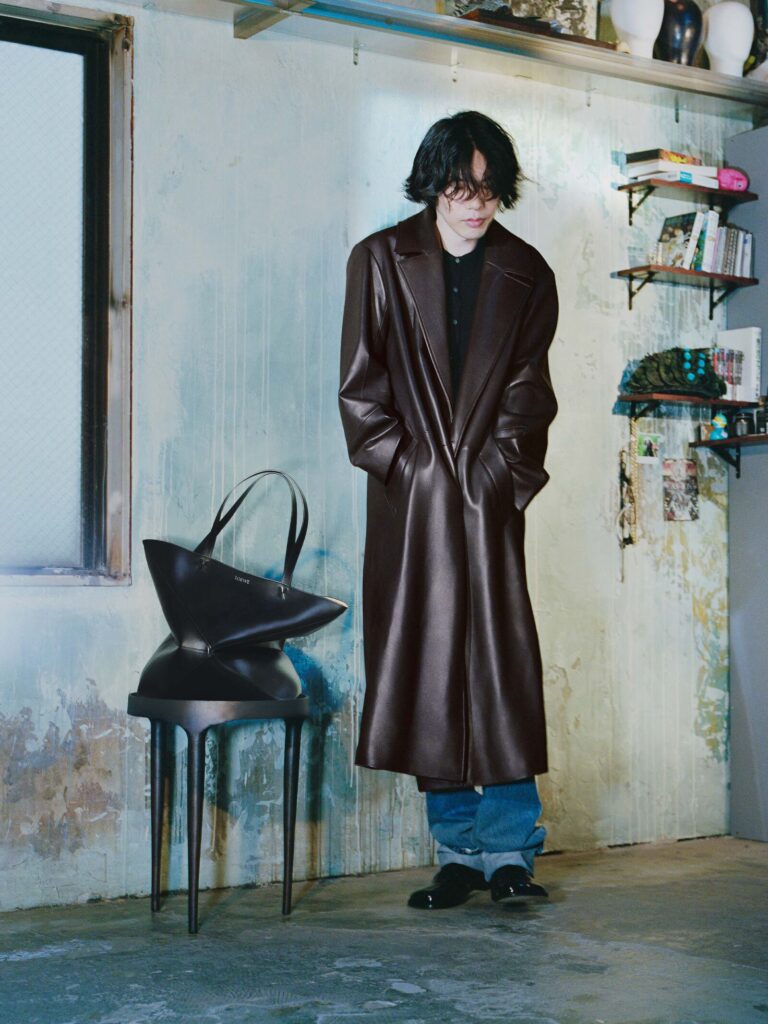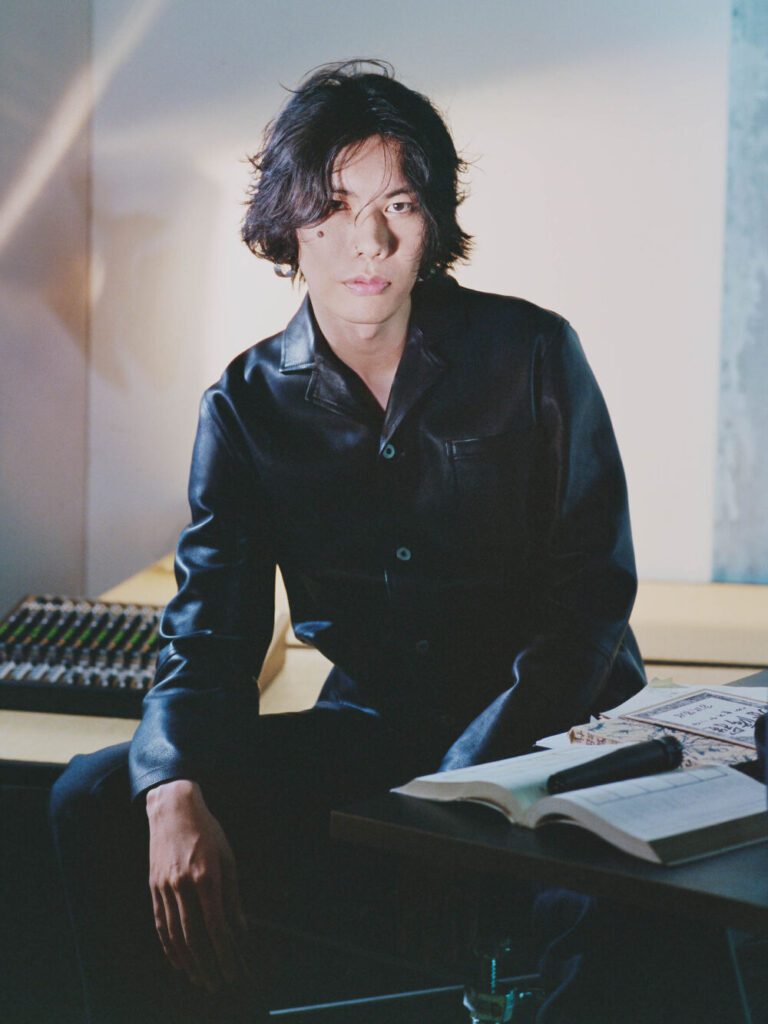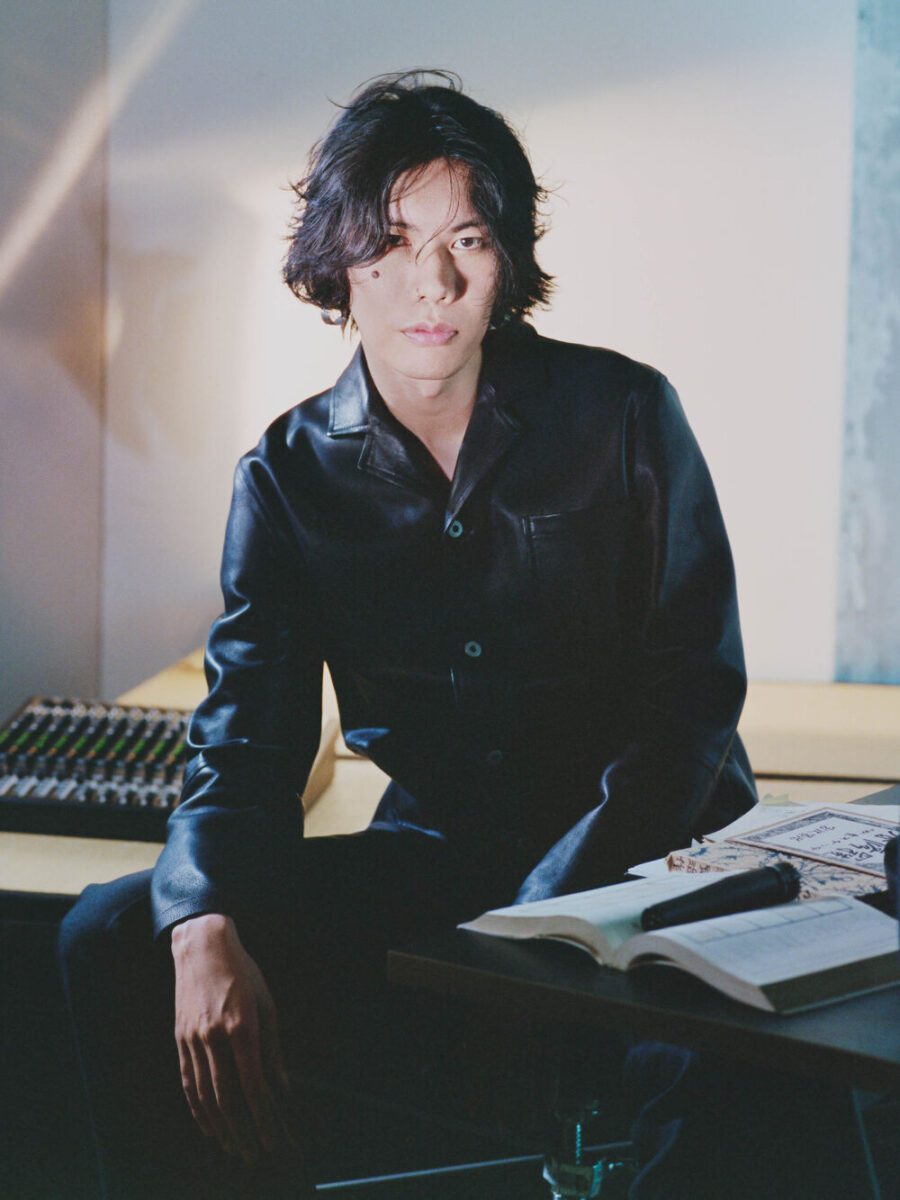The enigmatic yet brilliant Kenshi Yonezu on his latest hit, “Spinning Globe”, and his deep-rooted connection to the world of Hayao Miyazaki.
In a serendipitous relationship, both artists abide by the enigma of strict attention to detail and the whimsical beauty of well-aligned minimalism.
“Rather than layering different instruments to make the sound gorgeous, I wanted to be really simple, with minimal instruments like the piano, and use my voice for the rest. I should make a song that won’t age but isn’t novel either. In other words, I should make something that is old from the beginning, in a format that you can listen to for a long time. That has been my focus from the beginning.”
It is not often that an artist will bend the principles of their sound to present the future today. The natural flow of ideation, and the mix of their aura’s raw creativity, have developed something absolutely unique.
“The Boy and the Heron” is no ordinary film; it’s the final masterpiece of the legendary Hayao Miyazaki. Yonezu’s track, “Spinning Globe”, serves as its emotional bedrock. An unusual blend of bagpipes and piano, the track evokes memories of Scottish folk tunes – a conscious choice by Yonezu. “I have always felt something close to Scottish folk tunes in Mr. Miyazaki’s movies,” he explains, aiming to strike a balance between timelessness and novelty.
Crafting the lyrics felt like scaling a massive wall for them. Watching “The Boy and the Heron” only intensified their confusion, ironically the incomplete film they viewed felt distant, reminiscent of an ivory tower; far from the root of the beauty they were looking for. They recognized that translating the film’s soul into a song was a task set for failure. Their revelation was to bridge the worlds of a young fan, who had matured under the influence of Miyazaki’s magic, and the maestro himself. The song’s essence shifted from “How Do You Live?” to “This is their journey.” For them, it wasn’t merely introspective. While it captured the movie’s core and emotional vortex, it also reflected Miyazaki, their own early years, and their timeless query of life’s purpose.
Yonezu’s introduction to Miyazaki’s universe began in his formative years, with the powerful imagery of “Princess Mononoke.” Memories of a brown paper bag from McDonald’s and a hauntingly violent film intertwining in the mind of a young child. Over his formative years, films like “Spirited Away” invoked finally feelings of his own reality within the filmmakers fantasy. Miyazaki was thus embodied as a distant “mentor” in Yonezu’s mind. Reflecting on this bond, Yonezu observed when discussing his creative capacity, “Somewhere in my mind, I might have been seeking that sort of fatherliness in him.”
A personal highlight for Yonezu was his first meeting with the legendary Miyazaki, a memory he treasures. “When I met him for the first time, he was smiling all over, and I had the impression of a cheery grandpa,” he recalls.
When Kenshi Yonezu chose to collaborate with the gaming behemoth “Final Fantasy,” it signified a transformative moment in his musical trajectory. Video gaming, as a medium, envelops its audience in a more profound and encompassing manner. The emotional bond built between the virtual entity and its controler mimics a karmatic relationship in which the musical piece becomes the environment in which they navigate.
Within this sphere, Yonezu found himself deeply engrossed, tuning his sensibilities keenly to the game’s intricate storyline. His aim was ambitious: to craft a song that would echo in the hearts of players who would spend countless hours journeying through the game’s expansive universe. He wished for the music to be more than a mere background score; he envisioned it as the living heartbeat of the game, growing and evolving with the player’s experiences.
Yonezu’s partnership with Loewe’s FW23 men’s collection offered him a platform to merge his love for music with fashion. His deep respect for alternate perspectives was evident during his collaboration with photographer Arnaud Lajeunie. Yonezu’s belief in the transformative power of fashion only strengthens his stance on its significance in an artist’s career.
Kenshi Yonezu’s journey through the realms of music, film, gaming, and fashion is a testament to his versatility and the depth of his artistry. Drawing inspiration from legends like Miyazaki, Yonezu’s work remains a testament to the power of emotion and narrative in music. It’s a journey of introspection, tribute, and raw talent, and the world eagerly awaits his next masterpiece.





